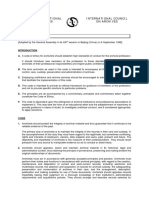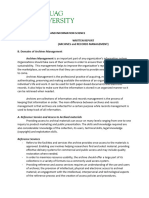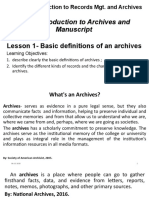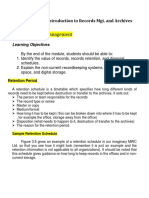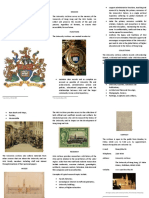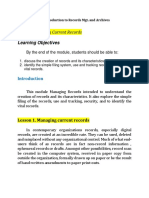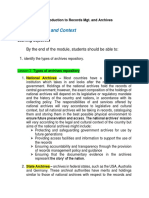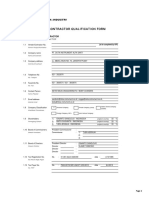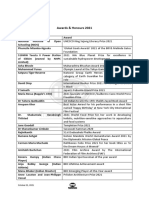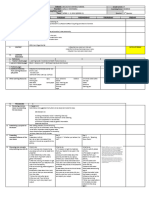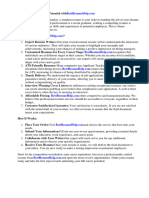LIS 111 Introduction to Records Mgt.
and Archives
Topic: Archival Services: a Matter of Trust
Learning Objectives
By the end of the module , students should be able to:
1. identify the duties, roles, and skills of the archivist.
2. explain the archival code of ethics.
Lesson 2. Archival codes of ethics
In the adsence of professional controls on employment, international,
national and state or local archival associations have focused on the
development of professional codes of ethics as tools for influencing, if not
controlling, effective and principled archival practice. Archivist are
encouraged, though not legally required, to recognize and respect such
codes of ethics and practice. The International Council on Archives (ICA) –
the internationa association representing archival institutions- published an
international codes of ethics in 1996, and similar national codes are in place
in many countries in the world, including Australia, Austria, Canada, the
Netherland, New Zealand, Spain, Switzerland, the UK and the USA.
The Archival Codes of practice vary in detail, the focus on a set of core
principles, as summarized below:
1. The archivist must protect the integrity of the archives in her care. –
the archivist will respect the provenance and original order of matterials
maintaining information about the historical and administrative origins
and will not manipulate, distort or alter archives. This principle enforces
the archivist’s responsibility not to rearrange archives by subject,
theme, geography or date, and it requires that she never ignore or
obliterate information about the original nature, source and structure of
the materials.
2. The archivist will maintain objectivity and impartiality in the
management of the materials in her care. The archivist will appraise,
acquire and select archival materials on behalf of her institution in an
� unbiased fashion, in order to preserve the ‘best’ documentary evidence
available. The archivist will not accept acquisitions that violate the
legitemate claims of other archival repositories or creating agencies,
and she will not enter into inter into bidding wars with other agnecies
to the detriment of the safety ans security of the archives in question.
Further, the arcivist will not acquire archives if doing so will endanger
the intergrity or safety of the materials.
3. The archivist must arrange and decribe archives, and make
information from and about them available, according to guidance
provided by international and national standards, in order to ensure the
best access to and use of the archives while protecting the
aunthenticity and integrity of the materials.
4. The archivist must ensure the continued accessibility of archival
materials. The archivist needs to consider not just about how to store
and manage archives to day but also how to develop and maintain the
infrastructure needed to provide a stable physical environment for
archives, and adequate access to them, five, ten or 20 years from now.
5. While respecting the legitimate moral rights fo the donors and creators
of records , the archivist must encourage the widest possible access
to archives and provide balanced and impartial reference services, not
biasing one request or user over another. The archivist must consider
reasonable restriction but discourage excessive controls on access to
archives: any limits set should be legitimate , reasonable and well
defined. The archivist must also support research without judging the
nature and purpose of anyone’s interest in archives. She must also
respect the privacy of people using the acrhives in her care.
6. The archivist must retain her own professional integrity, avoiding
potential conflict-of-interest situations where she may benefit
personally from archival activities to the detriment of the institution, the
creators of archives, users and researchers or archival colleagues.
When representing the archival institution , the archivist needs to set
personal interest aside and focus on her role as steward and
custodian.
7. The archivist should pursue personal and professional excellent in her
work by actively maintaining and upgrading her knowledge, skills and
abilities. The archivist has an obligation to remain knowledgeable
about current archival practices, and she must encourage and support
training and professional developmkent for her colleagues and
subordinates.
�References:
1. Millar, L. (2010). Archives: principles and practices. London: Facet Publishing.
2. http://www.nlarchives.org/archives_policies/archivists_role.html Retrieved June
15, 2020
3. https://www.trentu.ca/library/archives/archivists_responsibilities. Retrieved July
17, 2020.
